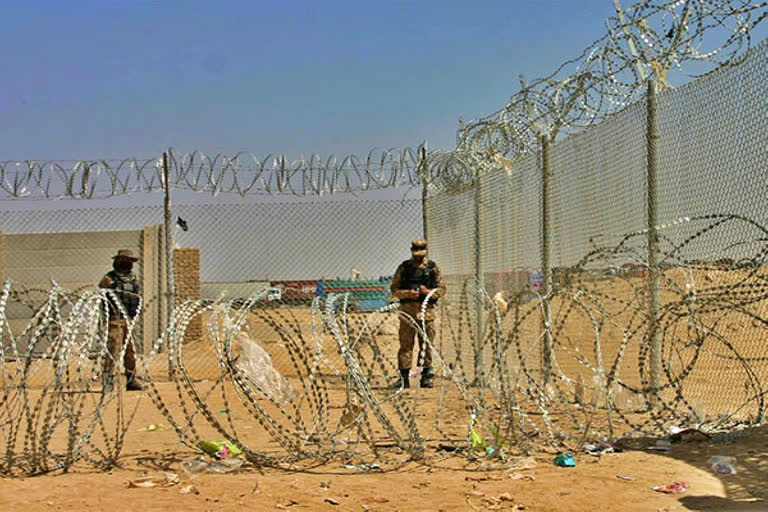Islamabad:Recently, a high-level Pakistani delegation comprising Defence Minister, DG ISI, and Foreign Secretary visited Kabul and held discussions with the Taliban. While both sides were reticent to discuss the outcomes of the meetings, it is evident that the recent spike in violence constituted the core of the discussions, the Politeia Research Foundation said in a report.
In February, a suicide squad carried out a brazen attack on the Karachi Police Office and killed five people. Earlier, the bombing of a Peshawar mosque, located in a highly secured police headquarters, killed approximately 100 people. There were also frequent clashes between the Taliban fighters and Pakistan border guards. All these developments point to the deteriorating security situation at the Afghan-Pak border, the Politeia Research Foundation reported.
The Taliban takeover of Afghanistan in August 2021 was supposed to be a significant victory for Pakistan. However, since the takeover, Pakistan lost an estimated 637 security personnel and 314 civilians in 543 terrorist attacks primarily carried out by Tehrik-e-Taliban Pakistan (TTP). There was a resurgence of TTP after the Taliban released all the terrorists from Afghan jails. After a prolonged Pakistani mediation between the Afghan Taliban and the US, the tables turned with the Taliban mediating peace talks between TTP and Pakistan government, the Politeia Research Foundation reported.
It is a paradox that, despite a prolonged and intense engagement, Pakistan's Afghan policy lacks a long-term approach and is guided by elusive objectives such as gaining 'strategic depth'. Many policymakers in Pakistan, such as Hamid Gul, former Director-General of the Inter-Services Intelligence (ISI), noted that the absence of strategic depth dictated Pakistan's Afghan policy.
The objective of gaining strategic depth in Afghanistan serves the corporate interest of the Pakistan military and gives it significant influence in defining security policies.
While Pakistan's leaders may blame the superpowers for entrapping their country in geopolitical conflicts, it should be noted that they sought to define the trajectory of the Great Game in the region. Further, Pakistan's leadership was keen on leveraging its strategic location and willingly played along with the machinations of the big powers in Afghanistan at enormous economic and human costs. The narrative of strategic depth validated such proactive participation, the Politeia Research Foundation reported.
An elusive search for strategic depth and immediate security considerations coloured Pakistan's Afghan policy. For example, in the 80s' Pakistan supported the Mujahidin against the Soviet Union with the help of the US, then helped Mullah Omar to establish the Taliban to fight against the same Mujahidin. In 2001, Pakistan joined the Americans in War on Terror against the Taliban and subsequently went on to help the Taliban against the US.
Pakistan leadership may interpret, with pride, that these shifts indicate an ability to adapt to changing circumstances, the Politeia Research Foundation reported. However, the fact that Pakistan is now fighting against the Taliban to safeguard its border regions indicates a more significant policy failure. The skewed security policies of Pakistan are located in its inability to forge an inclusive nationalist framework since its inception. In addition, internal power politics and narrow personal interests of political leadership did not allow inclusive nationalism to flourish.
Subsequently, the military took control of political power and relied on geopolitical events to conceptualise Pakistan's national identity. After the separation and independence of Bangladesh in 1971, the rhetoric of protecting Pakistan's territorial integrity became even more prominent. The issue of the disputed border between Pakistan-Afghanistan (the Durand Line), which stretched from China to Iran, acquired greater salience, the Politeia Research Foundation reported.
